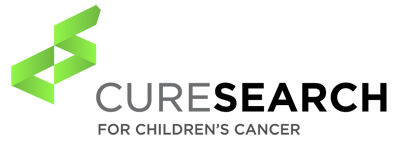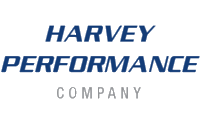 Dave Nevogt is a co-founder of Hubstaff, a leading time tracking platform for managing remote teams. We recently asked Dave about Hubstaff and the challenges of launching a software startup today.
Dave Nevogt is a co-founder of Hubstaff, a leading time tracking platform for managing remote teams. We recently asked Dave about Hubstaff and the challenges of launching a software startup today.
Here's what he had to say:
Can you tell us about your background in software development?
I focus on the product testing, usability and vision but I do not actually write the code for our platform. I've been involved with SaaS companies since 2009 and found it very rewarding, but also very hard. The main reason that it's hard is because there are so many edge cases when you are building complex software. Many times you have a vision, but in order to make that a reality it could take years of work and a lot of money.
Tell us about Hubstaff.com. What services do you offer? Who should be using them?
The main product is time tracking software built primarily for remote teams. The majority of our clients are people who have to manage remote employees or an outsourced company. Our software allows our clients to understand how much time is being spent on specific projects, pay their people automatically and more easily invoice their clients.
What are the benefits to businesses of programs like Hubstaff?
The biggest benefit that we provide is the automation of admin tasks in a business. Our clients need to know how much time they need to bill their clients and how much to pay their employees. We automate those tasks and without our software would take a lot of time by an admin-type person in the organization or even several people. On top of this, our clients get proof that work is actually being done on their projects and that their employees are working on the correct tasks. Many times in a remote organization, it can be very hard to make sure that people are working on the correct priorities.
What are some of the biggest challenges you found in launching and running a startup?
It's hard to stand out in a crowd and create something that is truly interesting to the marketplace. We started building Hubstaff in 2012 before the whole "remote" theme really took off. We built it because I had always worked remotely and it was hard for me to work with my team effectively.
Along the way we got small validation points, but it was hard in the beginning to get clients because it was a much smaller market and we didn't have the product we have today. So the entire process of launching a startup is hard for those reasons. It's hard to know that you are spending your time in the correct ways and on the right idea. There's a balance between being persistent and confident in the project you are working on, and beating an idea down only in the end to find out that no one wants what you are building.
What are the most important lessons you've learned about running a software business in the launching of Hubstaff?
The most important lesson that I've learned is to not start a company that has anything to do with desktop or mobile software. To build Hubstaff we need to create products for Windows, Mac, Linux, Chrome, iOS, Andoid and the web. That's really like supporting seven products and user experiences. It diverts our attention and ability to make progress in any one of the areas. it's also a lot more expensive and hard to QA. If I were starting over, I would focus on a SaaS business that could survive on the web only.
What are best practices would you recommend for startups or businesses developing software? What steps should they take?
Find out where your clients hang out online and speak with a few of them to figure out their pain points and how they are currently solving the problem. Make sure that you are not building something that is easily solved by a free option. Also, I would say sell to a niche. It's always much easier to find realtors, accountants, chiropractors, etc. ... than it is to go after the whole universe of people.
What are the most common mistakes you see other startups making?
One of the mistakes I see others making is expecting that people will come if they build a solution. You really have to get into a lot of different channels in order to start seeing clients signing up. Building a good foundation for your business, getting in each and every spot on the internet you can find to advertise your business. Conversion rates are pretty low, which means you really need to have a decent amount of traffic in order to move the needle.
What sort of timeline should software startups expect from conception to launch date?
It took us about two years to know that we were truly onto something, and took over three years to reach 1 million in ARR. It's not a fast process. Customers have high standards and to satisfy them it takes a lot of effort and money in most cases. Once you get to that point the customers will convert at higher rates but it takes a long time.
What are the most time-intensive parts of the development process?
Creating specifications for how things should work and testing are two big ones. We have many QA testers that are just testing new features almost all the time. We also spend a lot of time designing how UI components should work before writing any code. Coding itself probably takes the most time in terms of calendar days because only one developer works on the feature at one time, but in terms of total man hours, testing is right up there.
What's one lasting piece of advice you'd offer to individuals or businesses in software development?
Build a product that is web only and build a product where you only need to bring in one client and that client is the person playing. Hubstaff is an example of a software that is not like this ... We need to support five employees for every one client that is paying us. This means we have to pay server expenses and support costs for all of these extra people.
Meet with custom software development experts. Contact us today.

















